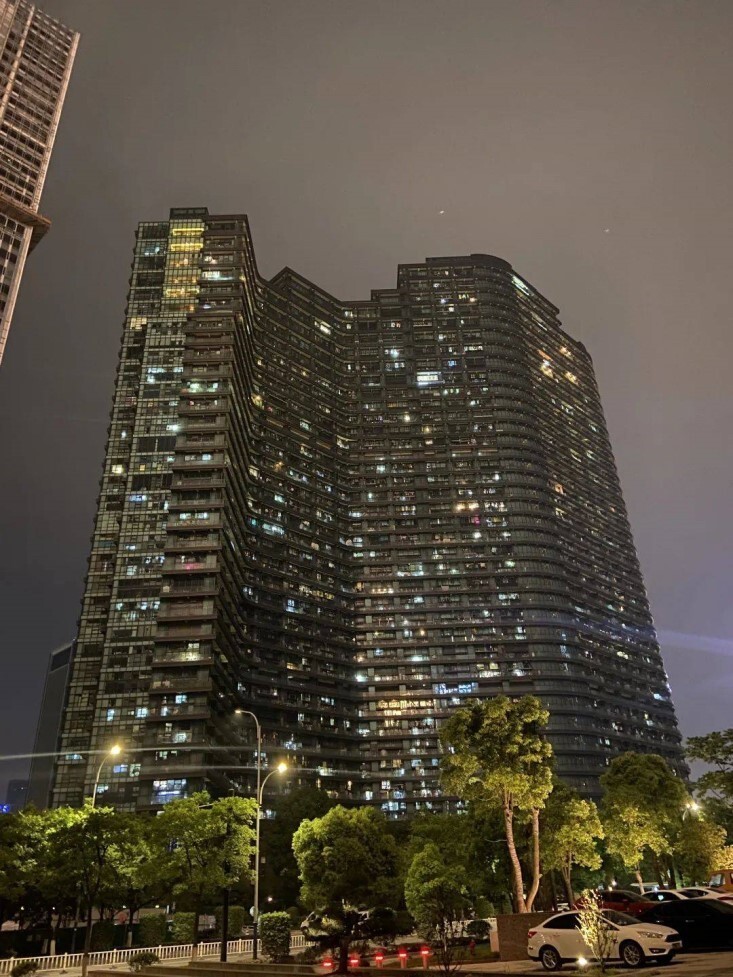Chinese "human settlement ", which can accommodate about 20 thousand people (12 photos + 1 video)
At first, a high-rise in the Chinese city of Hangzhou was built as first class hotel. However, plans changed over time and the building turned into a huge city within a city. 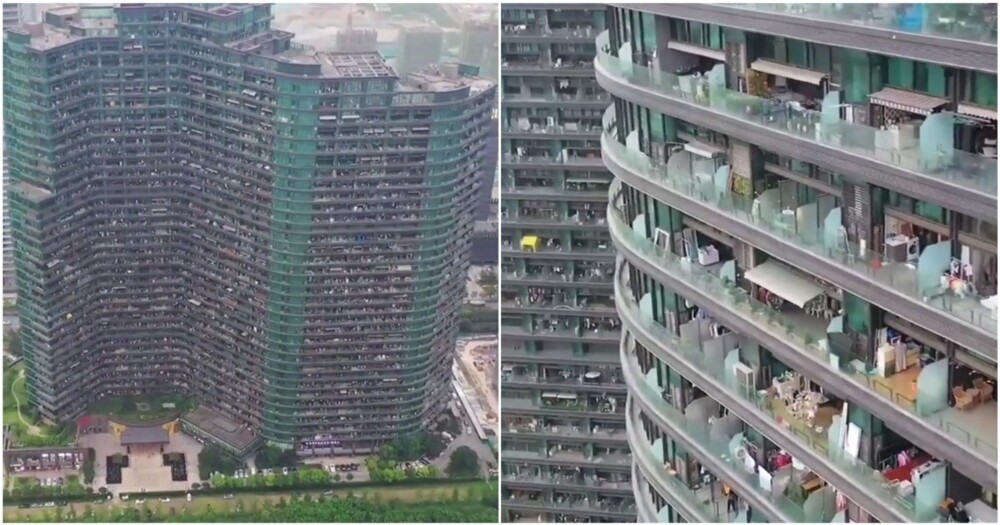
In recent years, many of us have become accustomed to working remotely and began to spend much more time at home than before. But imagine imagine a situation that, if you wish, you could not leave the limits at all his high-rise building. Just because everything you need for life is already there there are: not only apartments, but also shops, restaurants, a gym, a swimming pool, space for recreation and games, bank, hairdressers. It is in such situation are many thousands of residents of the Regent International complex in Chinese city of Hangzhou. At the same time, these are not super-dense slums like Hong Kong's Kowloon, but a completely modern house, built only 10 years ago in a good area of the city. Like a building conceived as a respectable hotel, turned into a "city in city" with a population that can reach 20 thousand people?
Failed hotel
Hangzhou is one of the largest economic and financial centers of China, located in the east of the country, in the delta the great Yangtze River. Among other things, it is here that headquarters of the well-known corporations Geely and Alibaba, operator AliExpress marketplace. The city, as usual in China, is being actively built, its The population has already exceeded 12 million people. To all this crowd of people you have to live somewhere, so it is not surprising that Hangzhou is constantly growing and up, and in breadth, new self-sufficient areas appear in it and, as turned out to be self-sufficient houses.
The Regent International complex was built in the business district Qianjiang Century City, which is being built across the river from the former financial center of Hangzhou. In addition to office towers, shopping malls and Olympic sports complex, other public building. One of them was to be a four-star hotel in the form letters S (or waves). It was built in 2013. Hotel height was 206 meters, and the number of floors varies from 36 to 39. The area of the building is 260 thousand square meters. Habitual Chinese scale. 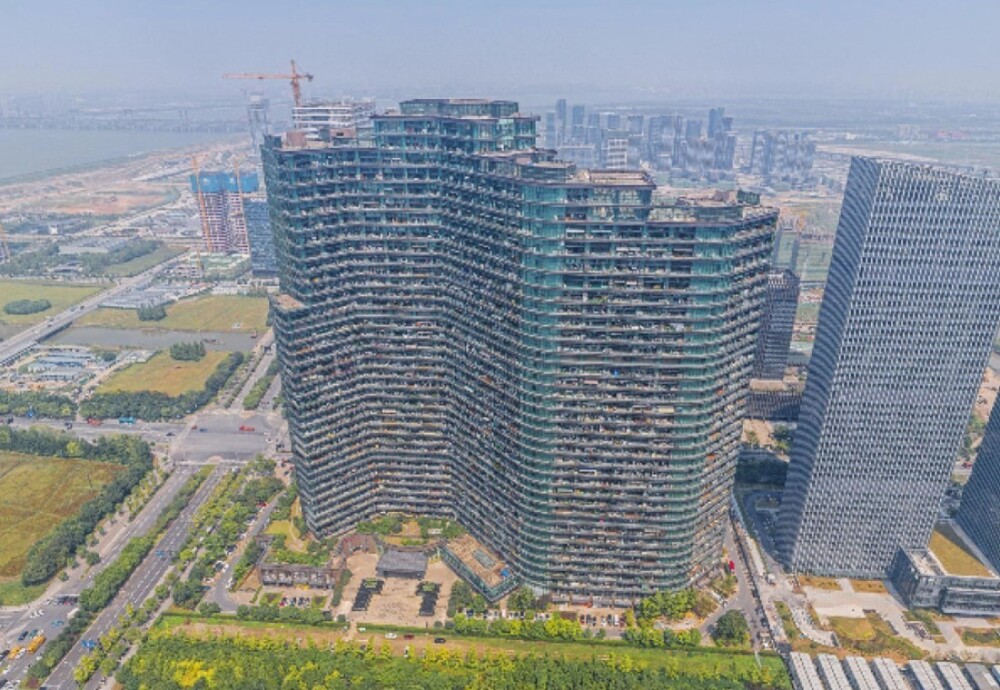
The hotel is being converted into a residential complex
1600 two-story rooms were designed in the hotel area from 74 to 222 "squares". In fact it should have been apart-hotel with apartment-type rooms designed for long stay. However, the demand for permanent housing in Hangzhou in this moment significantly exceeded the demand for hotel rooms, even if and this format. Therefore, the developer decided to sell "duplex lofts," as he called them, on the market for ownership, and that was the decision that determined the future fate of the building, its evolution (or, if you like, degradation) into a multifunctional, but above all residential complex.
The fact is that many buyers of two-story rooms large area realized their investment potential. Instead of live there yourself or rent them out entirely, it turned out to be more profitable divide two-story rooms into smaller, but autonomous rooms.
So "duplex", a two-story room with an area of 90 squares, could be "cut" into 6 small rooms, and large format suites - even at 10.
The combined rent from them was higher than the cost renting a room that remains in its original form. That's the way number of actual "numbers" in Regent International start gradually multiply, and the population of the building itself - to grow. 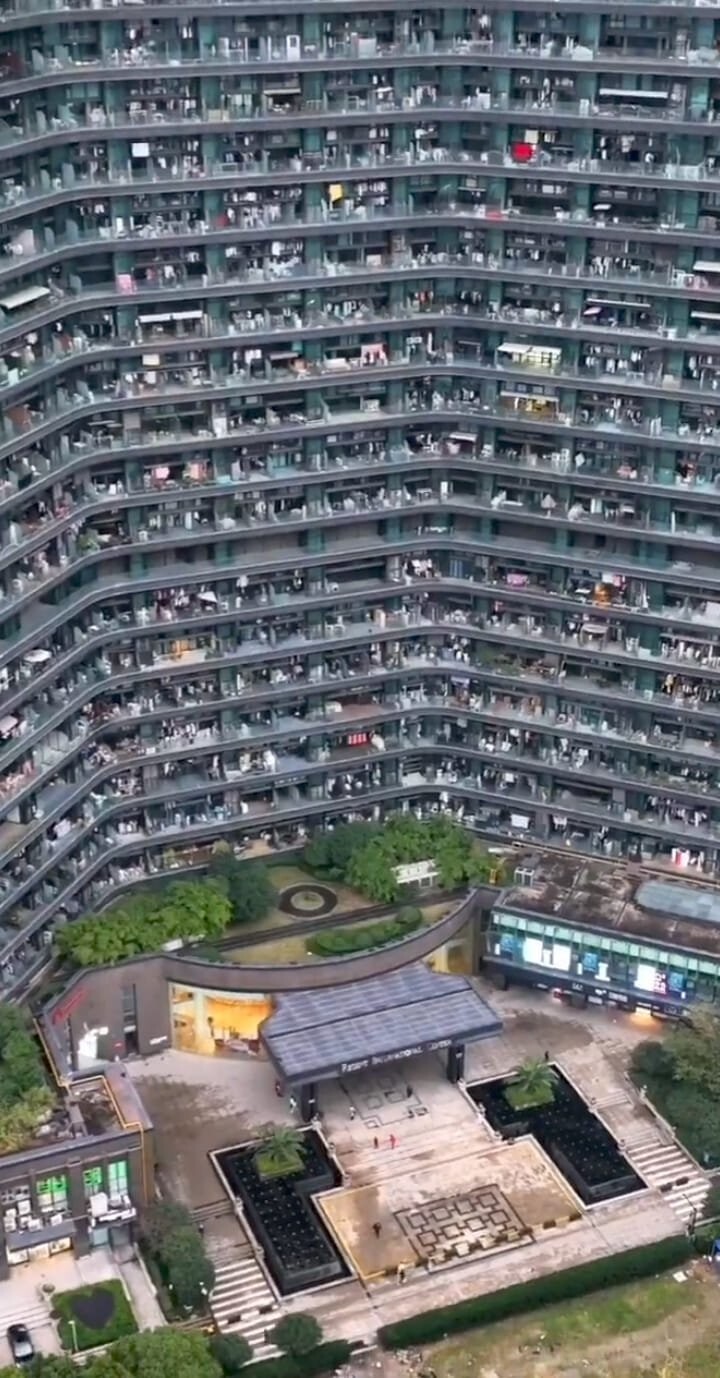
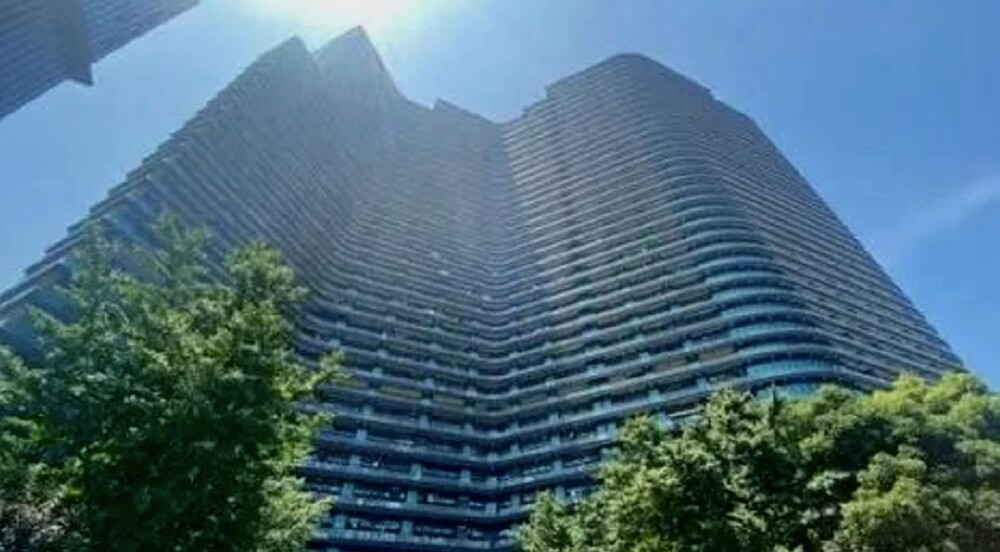
Community of young
It was a decision that suited everyone. The owners who invested in duplexes, big money by Chinese standards (the cost of a square reached $ 1,800), began to receive a return that allowed them to pay for an apartment in less than 10 years. And tenants who did not have a lot of money, especially young couples or singles who studied at universities or at the beginning of their careers, were able to rent basic housing elsewhere on the outskirts, but in a good, growing urban area, not far from their workplaces in some neighboring office tower.
The minimum cost of renting the cheapest room is about $160-220 per month. It will be a windowless room, especially without a balcony, but with a bathroom and minimal kitchen equipment, as well as place to sleep.
The conditions are spartan, but the price is appropriate. More spacious"apartments" with balcony access and natural light can be found for $500-600, which is quite affordable for young professionals, working in Qianjiang Century City or Hangzhou Financial Center, located on the opposite bank of the river. Many of the inhabitants of the Regent International with an increase in their social status and salary simply change the rooms in the building to ever larger ones before they get the opportunity to purchase a full-fledged apartment in a traditional residential complex. 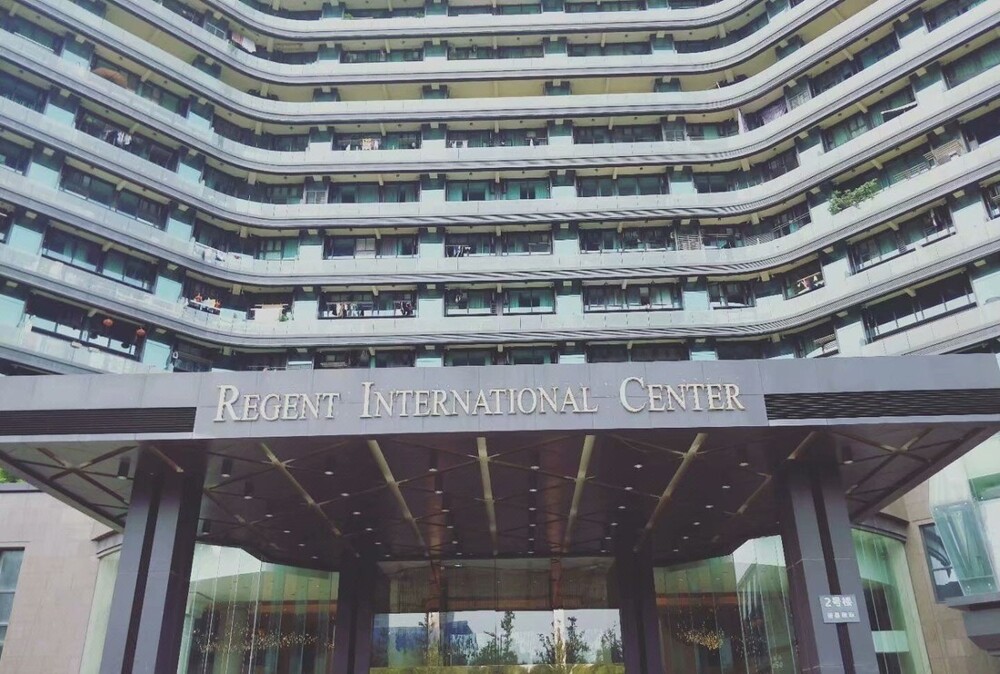
"City within a city"
Not all former "duplex lofts" have been transformed into "hostels". Regent International also has tenants who are completely occupy the former hotel rooms. Some of them are filmed offices, so there are various small businesses in the complex. The infrastructure created for the hotel is now used for the needs residents. Ten meters high lobby with a reception desk and an area expectations still impresses with its marble finish, and 24 elevators make it possible, even in the current state of the building, to satisfy logistic needs of the guests.
Regent International has a swimming pool, gym, a large food court with many establishments and a variety of cuisine, hairdressers, flower and nail salons, tea rooms, halls for playing Board games. There is a supermarket, an Internet cafe. For the needs of the services delivery on the ground floor there are storage rooms where the courier can leave the order, tell the code to the client, and he will already pick it up on one's own. Of course Regent International has no reputation respectable hotel, which he intended, but also some kind of ghetto for the poor it is not. Age and educational composition of residents allow the complex not to degrade into a criminal den. This, by in essence, a middle-class residential complex, just with a high density population. 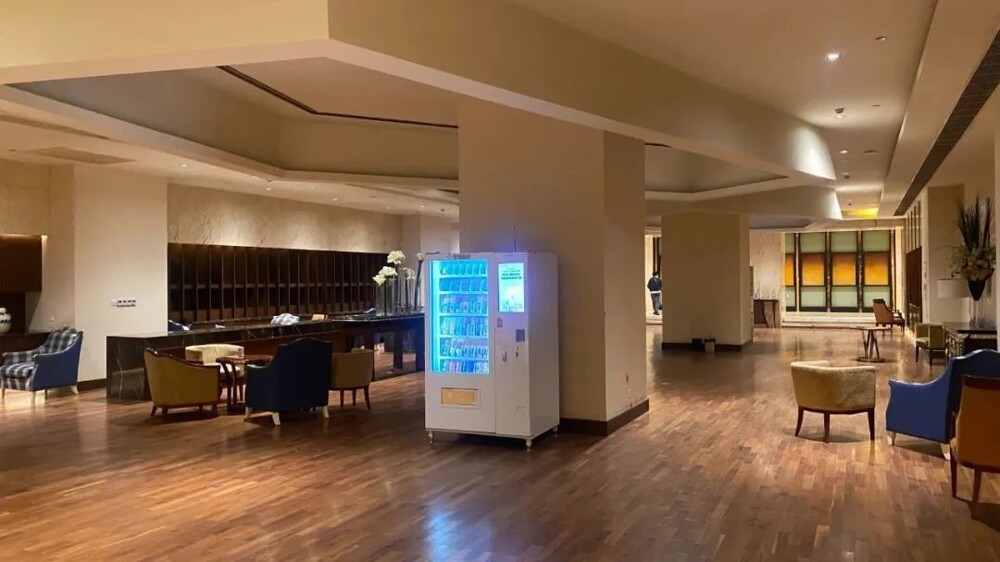
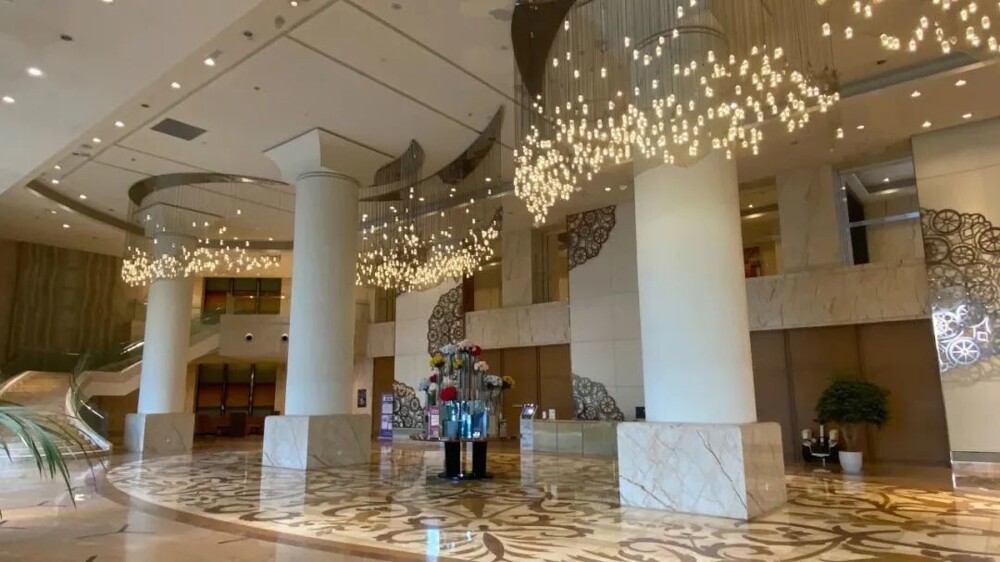
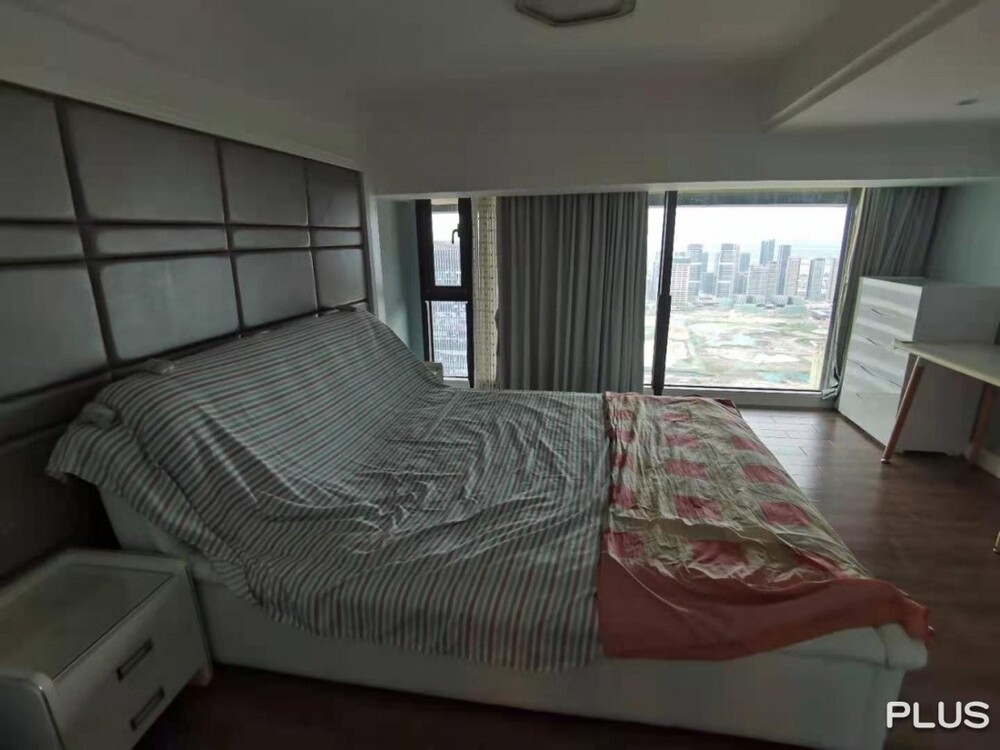
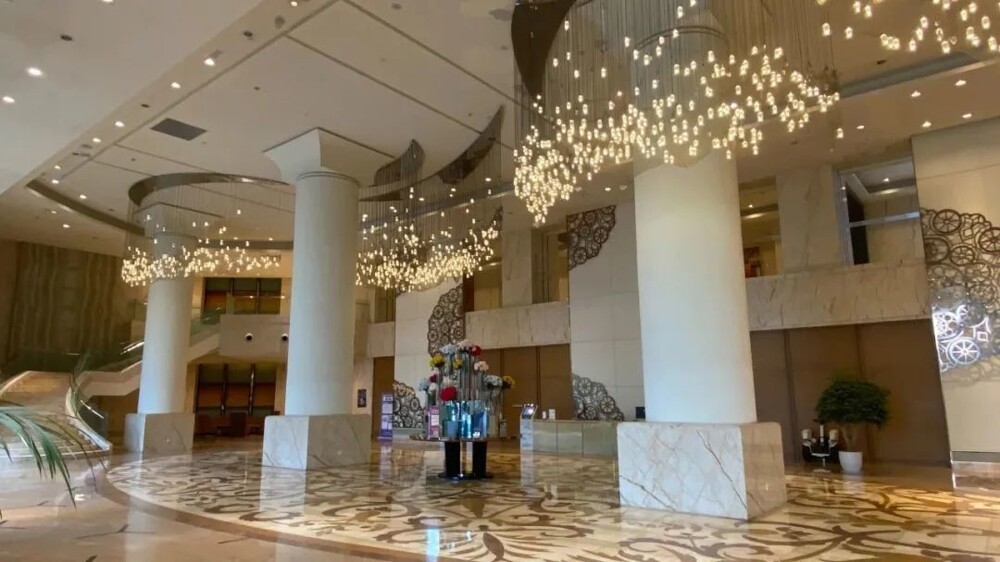
Number of inhabitants
Regent International Population Estimation Question Remains debatable simply because the administration of the center itself has no idea has how far the redevelopment of the former duplexes has gone and how much people each room can potentially accommodate.
Each owner independently decided how many rooms “cut” your property, and therefore about the exact number of inhabitants can only be speculated. Most conservative estimates they talk about 10-11 thousand inhabitants, the most liberal - about 20 thousand. It must also be taken into account that there are people in the building, only working there but living elsewhere. So most likely a fair figure would be somewhere in the middle of the range between conservative and liberal assumptions. 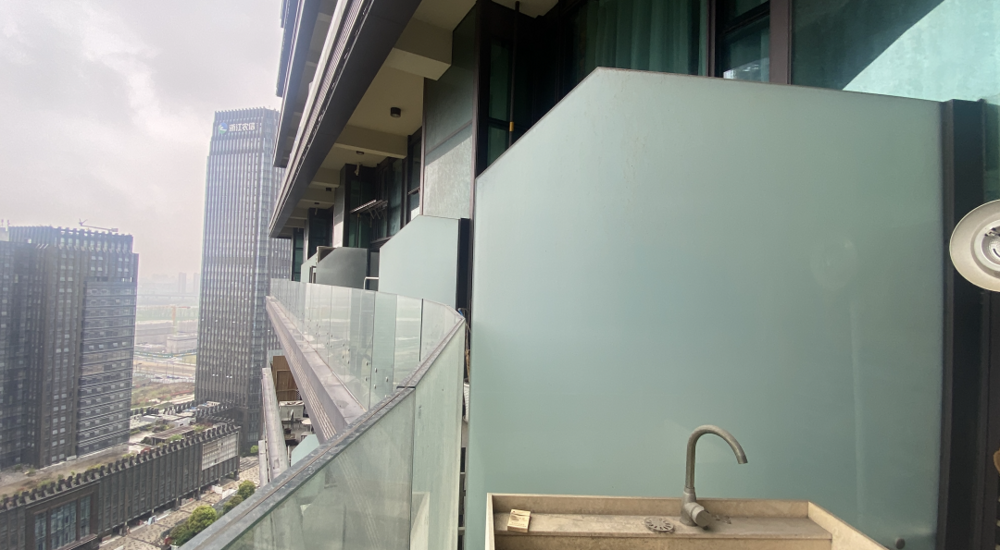
This reformatting of Regent International has its own big flaws. Re-planning is often carried out without coordination with special services. Homemade partitions inside the duplex are thin, and soundproofing, or rather the lack of it, is the main problem for residents. There have already been fires, which, fortunately, managed to be eliminated in the very beginning. How can force majeure events develop under conditions the population for which, obviously, the engineering infrastructure is not designed center, one can only speculate. However, free "apartments" in Regent International usually find new tenants very quickly, which means the transformation of a failed hotel into a residential complex can be recognized if not successful, at least in demand. 